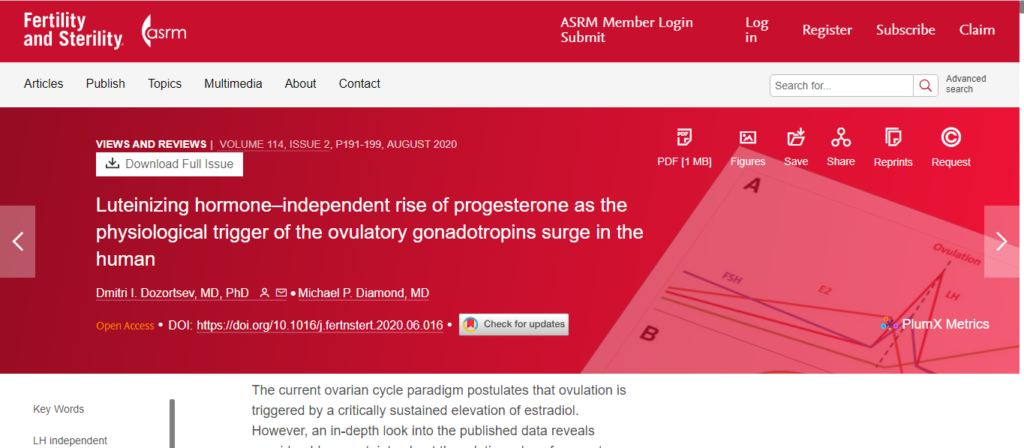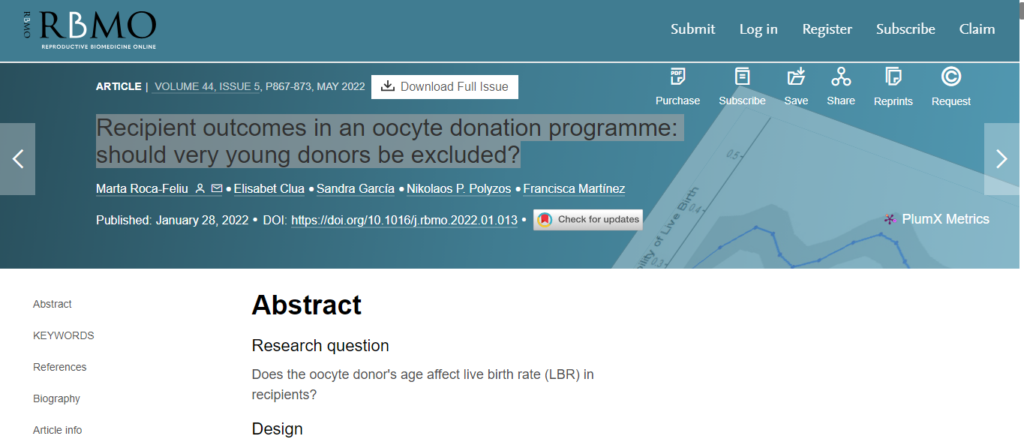Houston, TX September 28, 2021 – An egg release from the follicle – ovulation – is crucial to achieving pregnancy. It has been at the center of efforts for both, improving the chance of pregnancy and protection against undesirable conception.
For the last 70 years it was generally accepted that ovulation is initiated by the surge of estrogen, and blocked by another reproductive hormone, progesterone. Therefore, estradiol surge is used as a marker of ovulation in the fertility tracking kits, while progesterone-like chemicals are the main component of the birth control pills.
Yet, beneath the surface of a seemingly settled theory of ovulation, several stubborn facts screamed for an explanation. For example, if estradiol is required to initiate ovulation, its suppression would be expected to result in failure to ovulate. But, it does not! On the other hand, birth control pills that are expected to always suppress ovulation, can induce it instead, if they are started on a wrong day of the period. It was also never understood, why for some women it takes several months after stopping the pills to resume their menstrual cycle.
A recent discovery, published as a series of five connected manuscripts in the leading US fertility journal, Fertility and Sterility, co-authored by Dr. Dmitri Dozortsev, a director of reproductive laboratories at Advanced Fertility Center of Texas, introduces a new ovulation theory that resolves outstanding contradictions. It postulates that progesterone is not an ovulation blocker, but on a contrary, is a physiological ovulation trigger. Accordingly, birth control pills work because they begin to trigger ovulation too early, not allowing the ovulation system to become ready to produce a surge required for ovulation. You can think about this as a partially open water dam. Since it drains continuously, opening it cannot create a flood.
This explains why birth control pills must always be started at the beginning of the cycle: the first pill taken shortly before the mid-cycle, when the dam already full, may trigger ovulation and result in pregnancy. Furthermore, progesterone-like activity in the pills can make progesterone receptors temporarily less sensitive to natural progesterone, which would lead to a delay in resumption of a normal cycle in some women after stopping the pills. The new theory explains several other observations that did not have a good answer.
The new theory is expected to help women seeking pregnancy to become pregnant and those looking to prevent unwanted pregnancy to have more reliable protection.



